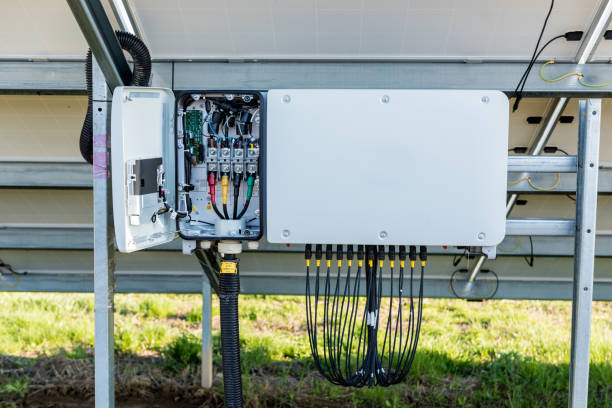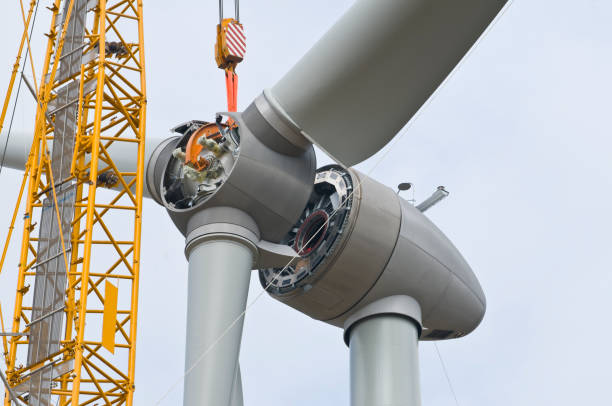Best Solar Panels for Home Use
This post contains affiliate links. I may earn a commission at no extra cost to you if you make a purchase. Note that I’m not a health or outdoor safety professional, so further research is advised. Your support keeps Outdoors A-Z running—thank you! Read the full disclosure.. Read the full disclosure here.
In an age where sustainability and energy efficiency are paramount, harnessing the power of the sun has become a beacon of hope for a greener future. The transition to solar energy not only reduces our carbon footprint but also offers a practical solution for powering our homes. Solar panels, in particular, have emerged as a revolutionary technology, transforming sunlight into clean, renewable energy. This blog post serves as your comprehensive guide to navigating the world of solar panels, with a focus on finding the best fit for your home.
As the demand for solar panels continues to rise, it’s crucial to understand the nuances of this technology. Whether you’re a homeowner looking to make the switch to solar energy or someone intrigued by the potential of harnessing sunlight for power, this post aims to unravel the complexities. We’ll explore the science behind solar panels, delve into the key factors you should consider when choosing one for your home, and shed light on the top brands leading the way in the solar industry.
Table of Contents
Understanding Solar Panels

In order to make an informed decision about the best solar panels for your home, it’s essential to grasp the fundamental principles behind this transformative technology. Solar panels, also known as photovoltaic (PV) panels, are devices designed to capture sunlight and convert it into electricity. This process is made possible through the ingenious application of semiconductor materials, predominantly silicon.
How Do Solar Panels Work?
At the heart of every solar panel are numerous solar cells, each comprising layers of silicon. When sunlight, which is composed of tiny particles of energy called photons, strikes these cells, it excites the electrons within the silicon.
This excitement generates an electrical current, which can be harnessed as usable electricity. An array of these interconnected cells forms a solar panel, and multiple panels combined create a solar system capable of powering homes and businesses.
Types of Solar Panels: Monocrystalline, Polycrystalline, Thin-film
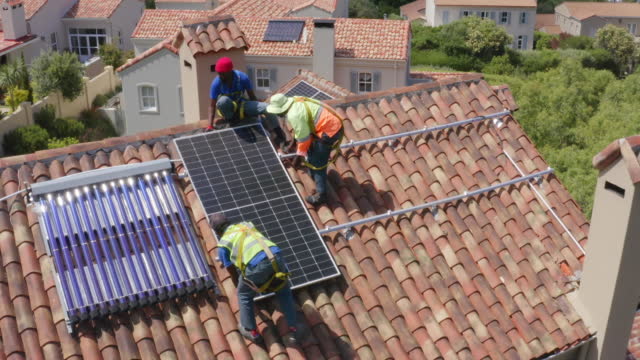
Monocrystalline Solar Panels:
These panels are crafted from a single crystal structure, making them highly efficient in converting sunlight into electricity. They are space-efficient and tend to perform well in various lighting conditions.
Polycrystalline Solar Panels:
Polycrystalline panels are made from multiple crystal structures. Although slightly less efficient than monocrystalline panels, they are cost-effective and offer a good balance between performance and affordability.
Thin-film Solar Panels:
Thin-film panels are made by depositing thin layers of photovoltaic material onto a substrate like glass or metal. They are lightweight, flexible, and often used in specific applications where traditional rigid panels may not be suitable.
Understanding the differences between these types of panels is crucial, as each has its unique advantages and ideal use cases. The choice between them often depends on factors such as available space, budget, and desired efficiency.
Factors to Consider When Choosing Solar Panels
Selecting the right solar panels for your home involves careful consideration of various factors to ensure optimal performance, efficiency, and longevity. Understanding these factors is pivotal in making an informed decision and maximizing the benefits of your solar energy system.
Efficiency and Wattage:
Solar panel efficiency refers to the ability of the panel to convert sunlight into electricity. Higher efficiency panels produce more electricity in a given area, making them ideal for homes with limited roof space. Additionally, consider the wattage, which indicates the panel’s maximum power output. Assess your energy needs and available space to determine the appropriate efficiency and wattage for your installation.
Durability and Lifespan:
Invest in panels that are durable and designed to withstand harsh weather conditions, such as heavy rain, snow, and hail. Panels with a sturdy frame and high-quality materials are essential for long-term performance. Understanding the lifespan of the panels is equally important. Most high-quality solar panels come with a lifespan of 25 to 30 years, ensuring a reliable source of clean energy for decades.
Cost and Budget Considerations:
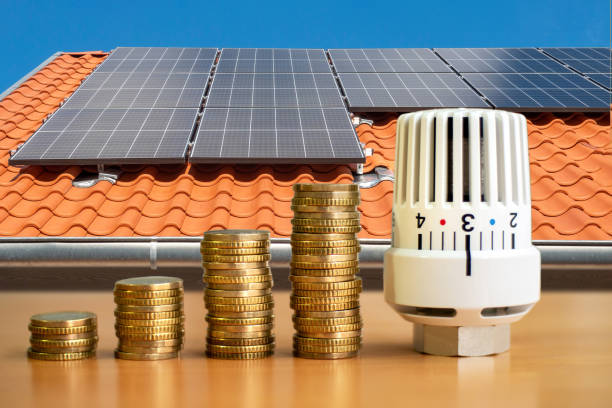
Set a budget for your solar panel installation and explore options that provide the best value for your investment. While high-efficiency panels might have a higher upfront cost, they can yield greater long-term savings due to increased energy production. Consider the overall cost of the entire system, including installation and additional components, to avoid unexpected expenses.
Warranty and Customer Support:
Review the warranty offered by the solar panel manufacturer. A strong warranty indicates the manufacturer’s confidence in the product’s durability and performance. Additionally, consider the reputation of the manufacturer’s customer support. Reliable support ensures timely assistance in case of issues or concerns, providing peace of mind throughout the lifespan of your solar panels.
Compatibility with Home Energy Systems:
Ensure that the selected solar panels are compatible with your existing or planned home energy systems. This includes compatibility with inverters, batteries, and other energy storage solutions. Compatibility ensures seamless integration, maximizing the efficiency of your entire solar energy setup.
By carefully evaluating these factors, you can narrow down your options and choose solar panels that align with your energy goals, budget, and environmental considerations.
Top Solar Panel Brands
When it comes to choosing solar panels for your home, the market offers a myriad of options from various manufacturers. To simplify your decision-making process, we have researched and compiled detailed reviews of some of the top solar panel brands renowned for their quality, efficiency, and reliability.
SunPower:
SunPower is a leading solar panel manufacturer known for its high-efficiency panels and innovative technology. Their monocrystalline solar panels offer exceptional performance and are highly regarded in the industry. SunPower panels are ideal for homeowners with limited roof space, as they produce more power per square foot than many other panels on the market.
LG Solar:
LG Solar is a trusted name in the solar industry, producing efficient and durable solar panels. Their panels are known for their excellent performance in low-light conditions and high temperatures, making them a popular choice for various climates. LG Solar panels come with a solid warranty, providing homeowners with confidence in their investment.
Panasonic:
Panasonic offers high-efficiency HIT® solar panels, known for their superior energy output and long lifespan. These panels use a unique heterojunction technology, combining monocrystalline and amorphous silicon layers, resulting in impressive efficiency levels. Panasonic panels are designed for both residential and commercial applications, providing versatile solutions for solar energy needs.
Canadian Solar:
Canadian Solar is a global solar panel manufacturer recognized for its reliable and cost-effective panels. They offer a wide range of products, including monocrystalline and polycrystalline panels, catering to different budget requirements. Canadian Solar panels are known for their durability and high performance, making them a popular choice for residential solar installations.
JinkoSolar:
JinkoSolar is one of the largest and most innovative solar panel manufacturers worldwide. They produce a variety of panels, including monocrystalline, polycrystalline, and bifacial panels. JinkoSolar panels are renowned for their efficiency, making them an excellent choice for homeowners looking to maximize energy production from limited roof space.
Each of these brands has its unique strengths, and the choice between them depends on your specific requirements, budget, and preferences.
Installation Process and Tips: DIY vs. Professional Installation
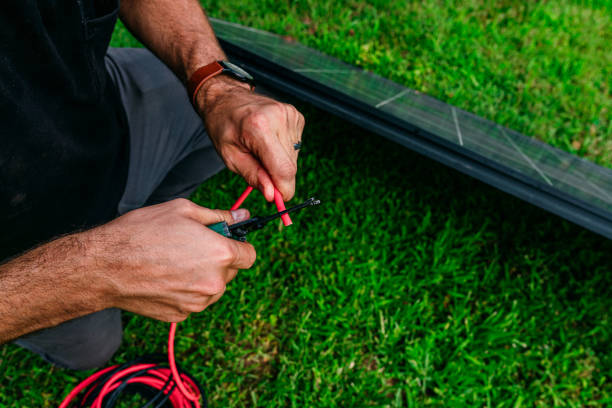
As you embark on your solar panel journey, one of the critical decisions you’ll face is whether to opt for a DIY installation or hire professionals to set up your solar energy system. Each approach has its advantages and considerations, and understanding the installation process is vital to making an informed choice.
DIY Installation:
- Advantages:
- Cost Savings: DIY installation can save you money on labor costs.
- Learning Experience: It provides an opportunity to learn about solar technology and gain hands-on experience.
- Sense of Accomplishment: Successfully installing your solar panels can be a fulfilling achievement.
- Considerations:
- Technical Expertise: Requires a good understanding of electrical systems and safety precautions.
- Permitting and Regulations: DIY installers need to navigate local regulations and obtain necessary permits.
- Warranty: Some manufacturers may require professional installation to validate the warranty.
Professional Installation:
- Advantages:
- Expertise: Professionals have the experience and knowledge to ensure a safe and efficient installation.
- Compliance: They are well-versed in local regulations and can handle permitting processes.
- Warranty Coverage: Professional installation often ensures warranty coverage for both panels and workmanship.
- Considerations:
- Cost: Professional installation involves labor costs, which can increase the overall project expense.
- Time: Scheduling and coordinating with installation professionals may take some time.
Regardless of the chosen approach, here are essential tips to consider during the installation process:
Roof Inspection:
- Assess your roof’s condition to ensure it can support the weight of solar panels.
- Identify any necessary repairs or maintenance before installation.
Panel Placement:
- Determine the best location for maximum sunlight exposure throughout the day.
- Consider potential shading from nearby trees or structures that could affect panel efficiency.
Inverter Installation:
- Install the inverter in a shaded, well-ventilated area to prevent overheating.
- Ensure proper sizing and compatibility with your solar panel system.
Regular Maintenance:
- Schedule periodic maintenance checks to clean panels and inspect for any issues.
- Monitor energy production to detect any significant drops in efficiency.
Safety Precautions:
- If conducting DIY installation, follow safety guidelines and use proper equipment.
- If using professionals, ensure they adhere to safety protocols during installation.
By carefully weighing your options and following these tips, you can make the most of your solar panel installation.
Future Trends in Solar Energy: Paving the Way for a Brighter Tomorrow
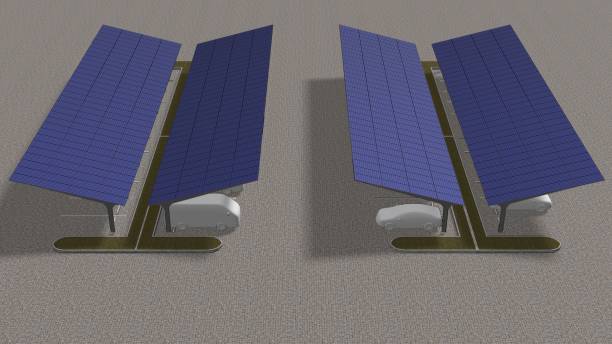
The field of solar energy is constantly evolving, driven by innovative technologies and a growing emphasis on sustainable solutions. As we look ahead, several promising trends are shaping the future of solar energy, making it an even more compelling choice for homeowners and businesses alike.
Improved Efficiency with Tandem Solar Cells:
Researchers are exploring tandem solar cells, which combine different materials to capture a broader spectrum of sunlight. By stacking multiple layers of solar cells, each optimized for a specific wavelength of light, tandem solar cells have the potential to significantly increase efficiency, allowing for more electricity generation from the same surface area.
Energy Storage Advancements:
Energy storage solutions, such as advanced batteries and flow cells, are becoming increasingly efficient and cost-effective. Improved energy storage technology enables homeowners to store excess energy generated during the day for use at night or during periods of low sunlight. This advancement addresses one of the significant challenges of solar energy: intermittent power generation.
Integrated Solar Solutions:
Integration of solar technology into everyday items, such as windows, roofs, and even clothing, is gaining momentum. Solar windows, for example, are equipped with transparent solar cells, allowing natural light to pass through while generating electricity. Integrated solar solutions offer new avenues for harnessing solar power without the need for additional space.
Smart Solar Technologies:
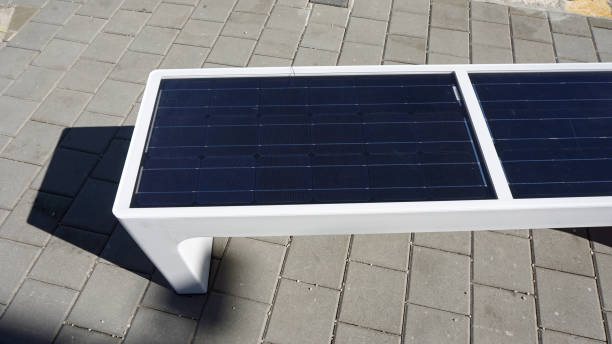
The rise of smart solar technologies involves the integration of digital tools and artificial intelligence (AI) to optimize energy production and consumption. Smart inverters, energy management systems, and IoT (Internet of Things) devices enable homeowners to monitor and control their solar panels remotely. AI algorithms analyze data to predict energy production, helping users make informed decisions to maximize efficiency.
Community Solar Initiatives:
Community solar programs allow multiple individuals or businesses to invest in a shared solar energy system. Participants can benefit from solar power without installing panels on their property. These initiatives promote renewable energy adoption on a larger scale, making solar power accessible to communities and individuals who might face barriers to traditional installations.
As these trends continue to unfold, the future of solar energy appears brighter than ever. From increased efficiency and innovative storage solutions to seamless integration into our daily lives, solar technology is set to play a pivotal role in the global transition toward sustainable energy sources.
Conclusion: Empowering Homes with Solar Energy
In the ever-changing landscape of energy consumption, solar power stands as a beacon of sustainability and innovation. Through this comprehensive exploration of solar panels for home use, we have unraveled the intricacies of this transformative technology.
As you consider integrating solar panels into your home, remember the key factors: efficiency, durability, compatibility, and budget. Whether you opt for high-efficiency panels from leading manufacturers or explore the emerging trends in solar technology, your decision has the potential to shape a more sustainable future for generations to come.






